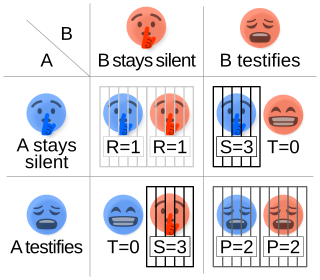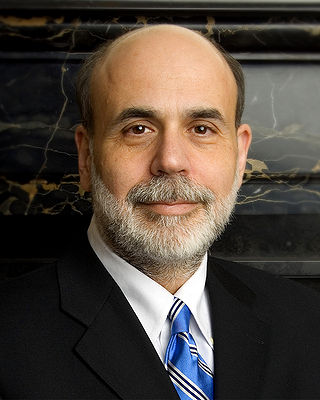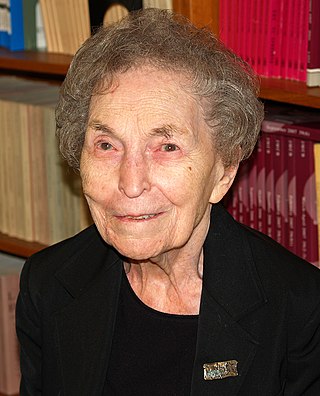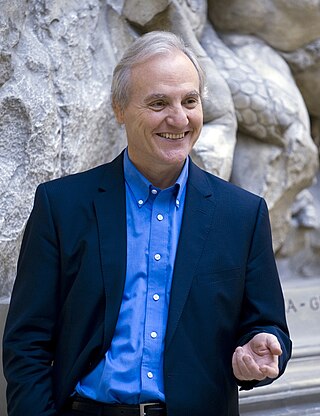An evolutionarily stable strategy (ESS) is a strategy that is impermeable when adopted by a population in adaptation to a specific environment, that is to say it cannot be displaced by an alternative strategy which may be novel or initially rare. Introduced by John Maynard Smith and George R. Price in 1972/3, it is an important concept in behavioural ecology, evolutionary psychology, mathematical game theory and economics, with applications in other fields such as anthropology, philosophy and political science.
Game theory is the study of mathematical models of strategic interactions among rational agents. It has applications in many fields of social science, used extensively in economics as well as in logic, systems science and computer science. Traditional game theory addressed two-person zero-sum games, in which a participant's gains or losses are exactly balanced by the losses and gains of the other participant. In the 21st century, game theory applies to a wider range of behavioral relations, and it is now an umbrella term for the science of logical decision making in humans, animals, as well as computers.

The Evolution of Cooperation is a 1984 book written by political scientist Robert Axelrod that expands upon a paper of the same name written by Axelrod and evolutionary biologist W.D. Hamilton. The article's summary addresses the issue in terms of "cooperation in organisms, whether bacteria or primates".

The prisoner's dilemma is a game theory thought experiment that involves two rational agents, each of whom can cooperate for mutual benefit or betray their partner ("defect") for individual reward. This dilemma was originally framed by Merrill Flood and Melvin Dresher in 1950 while they worked at the RAND Corporation. Albert W. Tucker later formalized the game by structuring the rewards in terms of prison sentences and named it the "prisoner's dilemma".

Tit for tat is an English saying meaning "equivalent retaliation". It developed from "tip for tap", first recorded in 1558.

Thomas Dashiff Gilovich an American psychologist who is the Irene Blecker Rosenfeld Professor of Psychology at Cornell University. He has conducted research in social psychology, decision making, behavioral economics, and has written popular books on these subjects. Gilovich has collaborated with Daniel Kahneman, Richard Nisbett, Lee Ross and Amos Tversky. His articles in peer-reviewed journals on subjects such as cognitive biases have been widely cited. In addition, Gilovich has been quoted in the media on subjects ranging from the effect of purchases on happiness to perception of judgment in social situations. Gilovich is a fellow of the Committee for Skeptical Inquiry.

Richard H. Thaler is an American economist and the Charles R. Walgreen Distinguished Service Professor of Behavioral Science and Economics at the University of Chicago Booth School of Business. In 2015, Thaler was president of the American Economic Association.

Robert Jervis was an American political scientist who was the Adlai E. Stevenson Professor of International Politics in the Department of Political Science at Columbia University. Jervis was co-editor of the Cornell Studies in Security Affairs, a series published by Cornell University Press.
In game theory, the centipede game, first introduced by Robert Rosenthal in 1981, is an extensive form game in which two players take turns choosing either to take a slightly larger share of an increasing pot, or to pass the pot to the other player. The payoffs are arranged so that if one passes the pot to one's opponent and the opponent takes the pot on the next round, one receives slightly less than if one had taken the pot on this round, but after an additional switch the potential payoff will be higher. Therefore, although at each round a player has an incentive to take the pot, it would be better for them to wait. Although the traditional centipede game had a limit of 100 rounds, any game with this structure but a different number of rounds is called a centipede game.
Regime theory is a theory within international relations derived from the liberal tradition that argues that international institutions or regimes affect the behavior of states or other international actors. It assumes that cooperation is possible in the anarchic system of states, as regimes are, by definition, instances of international cooperation.

Ben Shalom Bernanke is an American economist who served as the 14th chairman of the Federal Reserve from 2006 to 2014. After leaving the Federal Reserve, he was appointed a distinguished fellow at the Brookings Institution. During his tenure as chairman, Bernanke oversaw the Federal Reserve's response to the late-2000s financial crisis, for which he was named the 2009 Time Person of the Year. Before becoming Federal Reserve chairman, Bernanke was a tenured professor at Princeton University and chaired the Department of Economics there from 1996 to September 2002, when he went on public service leave. Bernanke was awarded the 2022 Nobel Memorial Prize in Economic Sciences, jointly with Douglas Diamond and Philip H. Dybvig, "for research on banks and financial crises", more specifically for his analysis of the Great Depression.
In game theory, Deadlock is a game where the action that is mutually most beneficial is also dominant. This provides a contrast to the Prisoner's Dilemma where the mutually most beneficial action is dominated. This makes Deadlock of rather less interest, since there is no conflict between self-interest and mutual benefit. On the other hand, deadlock game can also impact the economic behaviour and changes to equilibrium outcome in society.

Anna Jacobson Schwartz was an American economist who worked at the National Bureau of Economic Research in New York City and a writer for The New York Times. Paul Krugman has said that Schwartz is "one of the world's greatest monetary scholars."

Ernst Fehr is an Austrian-Swiss behavioral economist and neuroeconomist and a Professor of Microeconomics and Experimental Economic Research, as well as the vice chairman of the Department of Economics at the University of Zürich, Switzerland. His research covers the areas of the evolution of human cooperation and sociality, in particular fairness, reciprocity and bounded rationality.

Samuel Stebbins Bowles, is an American economist and Professor Emeritus at the University of Massachusetts Amherst, where he continues to teach courses on microeconomics and the theory of institutions. His work belongs to the neo-Marxian tradition of economic thought. However, his perspective on economics is eclectic and draws on various schools of thought, including what he and others refer to as post-Walrasian economics.

Herbert Gintis was an American economist, behavioral scientist, and educator known for his theoretical contributions to sociobiology, especially altruism, cooperation, epistemic game theory, gene-culture coevolution, efficiency wages, strong reciprocity, and human capital theory. Throughout his career, he worked extensively with economist Samuel Bowles. Their landmark book, Schooling in Capitalist America, had multiple editions in five languages since it was first published in 1976. Their book, A Cooperative Species: Human Reciprocity and its Evolution was published by Princeton University Press in 2011.
Strong reciprocity is an area of research in behavioral economics, evolutionary psychology, and evolutionary anthropology on the predisposition to cooperate even when there is no apparent benefit in doing so. This topic is particularly interesting to those studying the evolution of cooperation, as these behaviors seem to be in contradiction with predictions made by many models of cooperation. In response, current work on strong reciprocity is focused on developing evolutionary models which can account for this behavior. Critics of strong reciprocity argue that it is an artifact of lab experiments and does not reflect cooperative behavior in the real world.
Social preferences describe the human tendency to not only care about one's own material payoff, but also the reference group's payoff or/and the intention that leads to the payoff. Social preferences are studied extensively in behavioral and experimental economics and social psychology. Types of social preferences include altruism, fairness, reciprocity, and inequity aversion. The field of economics originally assumed that humans were rational economic actors, and as it became apparent that this was not the case, the field began to change. The research of social preferences in economics started with lab experiments in 1980, where experimental economists found subjects' behavior deviated systematically from self-interest behavior in economic games such as ultimatum game and dictator game. These experimental findings then inspired various new economic models to characterize agent's altruism, fairness and reciprocity concern between 1990 and 2010. More recently, there are growing amounts of field experiments that study the shaping of social preference and its applications throughout society.
Gregory Chi-Chong Chow is a Chinese-American economist at Princeton University and Xiamen University. The Chow test, commonly used in econometrics to test for structural breaks, was invented by him. He has also been influential in the economic policy of China, including being an adviser for the Economic Planning and Development Council of the Executive Yuan in Taiwan, and being an adviser for the Chinese State Commission for Restructuring the Economic System on economic reform.
Behavioral game theory seeks to examine how people's strategic decision-making behavior is shaped by social preferences, social utility and other psychological factors. Behavioral game theory analyzes interactive strategic decisions and behavior using the methods of game theory, experimental economics, and experimental psychology. Experiments include testing deviations from typical simplifications of economic theory such as the independence axiom and neglect of altruism, fairness, and framing effects. As a research program, the subject is a development of the last three decades.











